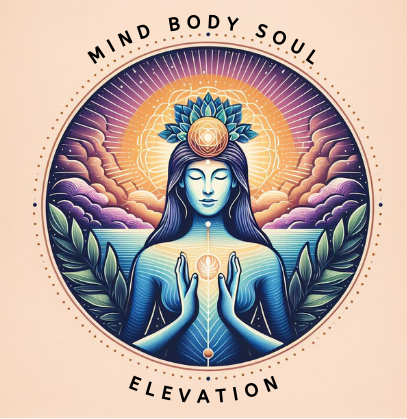
Finding time to connect with nature can sometimes feel overwhelming and especially for me as a working single mom and having so many daily chores and activities to complete, it has been easy to say, “I just don’t have the time”. One routine I have implemented and stick to is taking at least a 30-minute daily walk whether I want to or not. Every day, I am thankful for this time and always feel better for have doing so. It has improved my physical and mental health and become my go to coping strategy. Researchers have consistently found an impressive link between outdoor exposure and a reduced risk of several chronic diseases. This isn’t just about feeling good while taking in a breath of fresh air; it’s also about long-term health benefits.
Now, what is at work behind these findings? Scientists have observed that folks who spend more time outdoors often have enhanced immune function. That means your body is potentially better equipped to ward off illnesses when you’re regularly soaking up nature. Plus, when you’re outside, you’re usually bathing in sunlight, which kick-starts vitamin D production in your body. Adequate vitamin D levels are crucial for bone health and have been linked to a lower risk of heart disease.
Moving on, let’s talk about serious health conditions like obesity and diabetes. Multiple studies have pointed out that engaging in outdoor activities can help keep these at bay. It’s a simple equation: more movement equals fewer health issues. When you’re out and about, walking, hiking, or even playing frisbee, you’re burning calories and regulating your insulin levels, which is essential for maintaining a healthy weight and metabolic balance.
Asthma hospitalizations can also be influenced by how much time you spend outside. Fresh air is not just a metaphor for a new perspective — it’s literally a building block for better respiratory health. Of course, air quality and individual health conditions must be considered, but generally, people who spend more time outdoors tend to have better-managed asthma symptoms.
So, as we sail into the mental realm of health benefits, remember that this connection to nature isn’t just good for your physique. The mental advantages are equally compelling. In the next section, you’re going to find out about how the tranquility of natural spaces plays a critical role in cognitive function, stress reduction, and overall happiness. And guess what? They are all interlinked to create a comprehensive picture of your well-being.
Cognitive Clarity and Reduced Stress: The Mental Advantages of Being Outdoors

You’re going to find out about just how significant the great outdoors can be for your mind. Let’s talk facts. Scientists have repeatedly found that exposure to nature is strongly linked to better cognitive function. It’s not just about a feeling; it’s about measurable improvements in attention, creativity, and problem-solving skills. Imagine turning a stroll in the park into a mental power-up session.
But here’s the kicker: stress seems to melt away with the scenery. Studies show that natural environments can significantly lower levels of cortisol, the ‘stress hormone.’ And as those stress levels dip, so does the risk of many mental health disorders. It’s like nature’s own brand of therapy, without the copay!
Now, this isn’t just about reducing the bad; it’s also about boosting the good. Happiness has a distinct ‘nature-related’ component. Several studies affirm that regular contact with nature can lead to an uptick in mood and self-esteem, immensely valuable in fighting depression and anxiety. Who knew that plants and fresh air could be part of your mental wellness toolkit?
Here’s another benefit to add to the list: nature’s ability to improve concentration and learning. Ever noticed how a walk outside can clear the brain fog? Well, there’s science to back that up. Spending time in natural settings can sharpen your focus, helping kids and adults alike to concentrate better when it’s time to hit the books or focus on work.
Lastly, investing in outdoor time can mean a world of difference for emotional well-being. It’s about layering those moments of calm with subtle, yet profound, joy. Whether it’s the sound of leaves rustling in the wind or the sight of wildlife going about its day, nature offers those small, yet impactful, sensory experiences that culminate in relaxation and a happier state of mind.
A Path to Wellness: The Workout Benefits of Engaging in Outdoor Exercise
If you’ve ever felt more energized after a brisk walk in the park, you’re not alone. Multiple studies show that outdoor exercise isn’t just a pleasant pastime; it’s a potent path to improving your physical fitness. From low-intensity activities like walking or hiking to more vigorous pursuits such as biking or running, the great outdoors offers a natural gym with no membership fees required.

When you take your workout outside, you aren’t just burning calories; you’re engaging with an environment that inherently encourages movement. Exercising in natural spaces can lead to a healthier lifestyle overall. I’m talking about taking the stairs instead of the elevator, opting to walk to the store, or choosing a game of frisbee over scrolling through your phone.
Sleep is another critical component of health, and here’s some good news: outdoor exercise can lead to better sleep quality. It makes sense when you consider the benefits of physical exertion combined with the calming influence of natural surroundings. Your workout under the sky can help regulate your sleep cycle, leading to more restful nights.
Looking into the research, there’s overwhelming evidence to suggest that those with higher levels of outdoor activity have better health markers across the board. From reduced blood pressure and lower body mass index to improved mental well-being, the case for outdoor exercise is compelling.
So, what’s the magic number? According to one study, spending a cumulative two hours a week in nature leads to significant health and well-being improvements. That’s just under 30 minutes a day of breathing in fresh air and getting your heart rate up amidst the trees, grass, and sunshine.
Community and Connection: Socializing in the Great Outdoors for Well-being

Striking up conversation on a hiking trail or joining a community garden can do more for your health than you might think. It’s the simple act of connecting with others while being surrounded by nature that can have tremendous benefits for your mental health. Socializing in the great outdoors isn’t just enjoyable; it’s a vital component of a holistic approach to well-being.
When we engage in outdoor activities together, we’re not only getting the physical perks of movement but also nurturing our need for social interaction. These moments of laughter and camaraderie in the fresh air contribute significantly to a person’s overall sense of happiness and satisfaction with life.
Activities like group hikes, outdoor volunteer work, or team sports in the park are just a few examples of how you can merge the joy of being in nature with the pleasure of good company. Embracing these practices not only enriches your personal life but also tightens the fabric of the community.
Reflecting on the 2019 study that links two hours a week in nature with better health and well-being, it becomes clear that this isn’t just about solitary time in the woods – it’s also about the shared experiences that bloom in those natural spaces. Regularly dedicating time to enjoy the outdoors with friends and family is a simple yet powerful way to enhance your life.
In summary, the cocktail of exercising, breathing in the fresh air, soaking up the sights and sounds of nature, and doing it in good company might be just the recipe for a happier, healthier you. So next time you’re planning your week, sketch in some outdoor time with others. You may find it’s just under half an hour each day that could lead to significant improvements in your quality of life.
